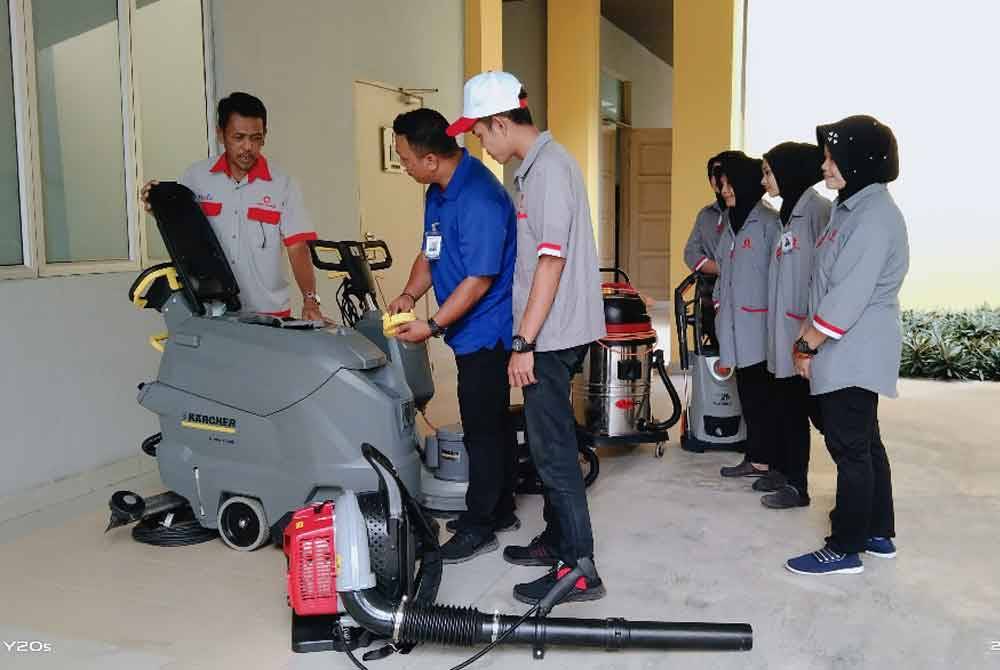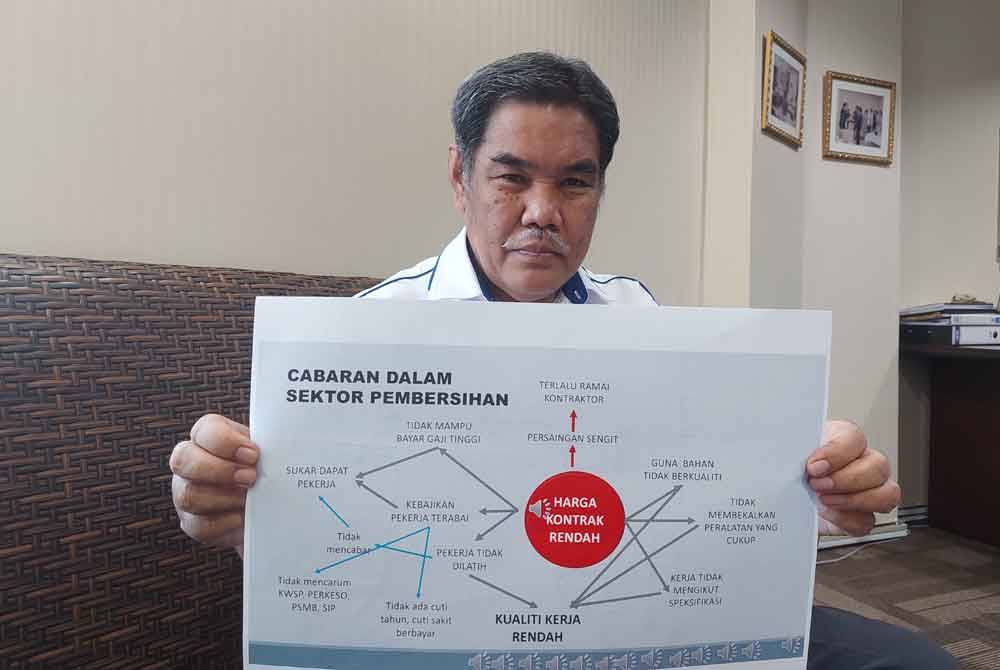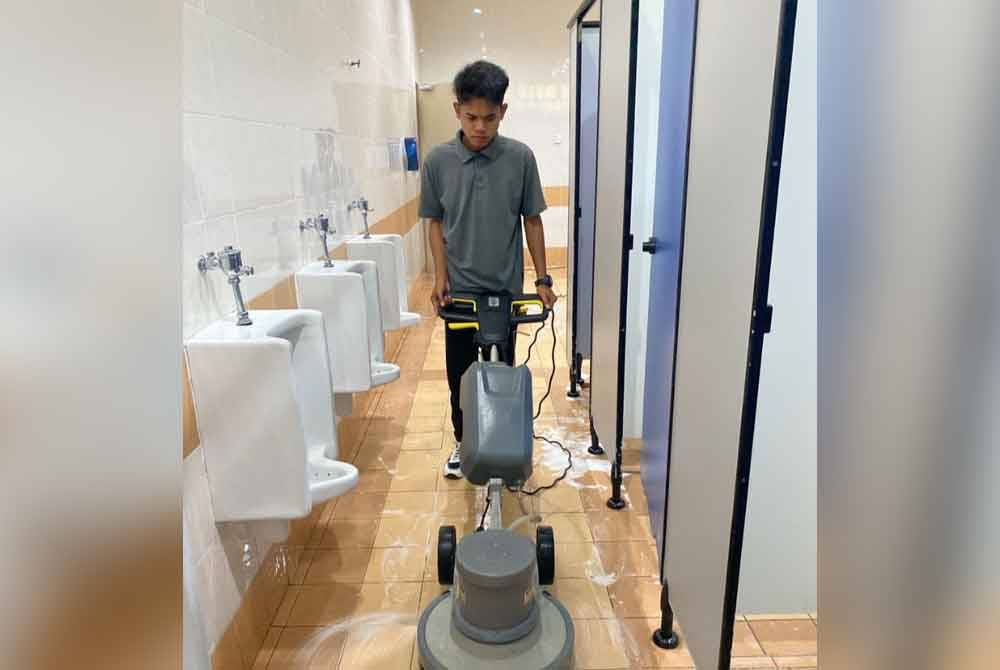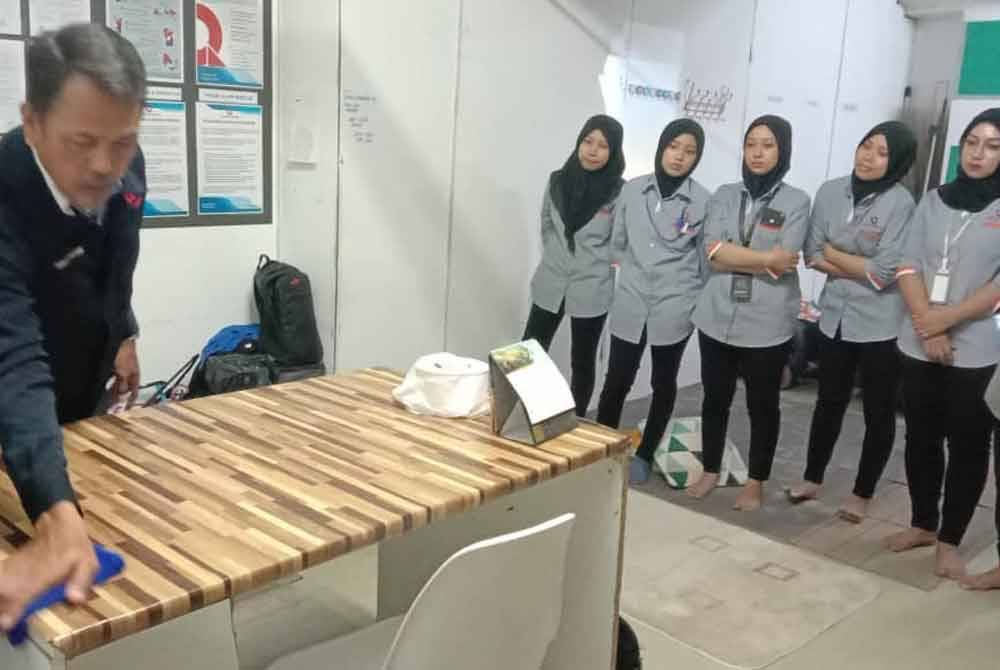Only one per cent of cleaners are youths

KUALA LUMPUR - Over 100,000 cleaning services employers and cleaners in the country are struggling with low contract values, resulting in neglected worker welfare due to contractors' inability to provide adequate support.
At the same time, local youths were not interested in working as cleaners.
It is estimated that those aged 40 and below make up less than one per cent of the workforce, while those aged 41 to 49 account for around nine per cent.
Malaysian Association of Cleaning Management (MACM) president Noruddin Idris said the issue of low contract prices has been ongoing for a long time and is currently a major problem in the cleaning sector in Malaysia.
This, he said was due to a price war where anyone could register as a cleaning contractor and offer services even without knowledge in the field.

"As a result, the number of cleaning contractors is excessive and sometimes even Class F contractors who have no work are competing for these cleaning contracts.
"The number of registered cleaning contractors in the country, according to the Domestic Trade and Cost of Living Ministry data, is 24,000, with over 88,000 workers.
"To ensure contractors can maintain worker welfare, provide training and deliver quality work, the average contract price should be RM2,500 per worker compared to the current value of below RM2,000," he said.
He added that low contract prices pushed contractors to use low-quality cleaning materials and limited cleaning equipment that did not meet the job scope specifications.
He noted that this has also led to some employers failing to make contributions for their workers to the Employees Provident Fund (EPF), Social Security Organisation (Socso), Employment Insurance System and Human Resources Development Fund.

"Workers do not have sick leave or paid sick leave. That is why, sometimes, you read in the newspapers about cleaning contractors not paying EPF, Socso or delaying salary payments. Why does this happen? It is because of unreasonable contract prices,” he said.
Noruddin explained that contractors could not offer high salaries to workers compared to the minimum wage of RM1,500 per month, leading to difficulties in attracting local workers, especially youths.
"This means that if someone working at a convenience store earns RM1,500, then in the cleaning industry, we might need to offer RM1,750 or RM1,800 to attract them.
"Currently, about 75 per cent of the workforce in this sector are foreigners, mostly from Indonesia. Most of the workers are also aged 50 and above," he added.
He said young people perceived the job as unpopular, unchallenging and lacking in skill development.
"When there is no training, young people do not see a future in this field. They might think, they would only be holding a broom until they are 50 or 60 years old?.
"In reality, there is career progression in this field. The Department of Skills Development, in collaboration with MACM, has established the National Occupational Skills Standard," he said.

Noruddin said workers could obtain the Malaysian Skills Certificate in cleaning services up to level five, which was the Malaysian Advanced Skills Diploma in Cleaning Management, recognised as equivalent to a general degree in academics.
However, he said so far, no workers in the sector have achieved this level because employers cannot afford to provide such training.
Download Sinar Daily application.Click Here!















